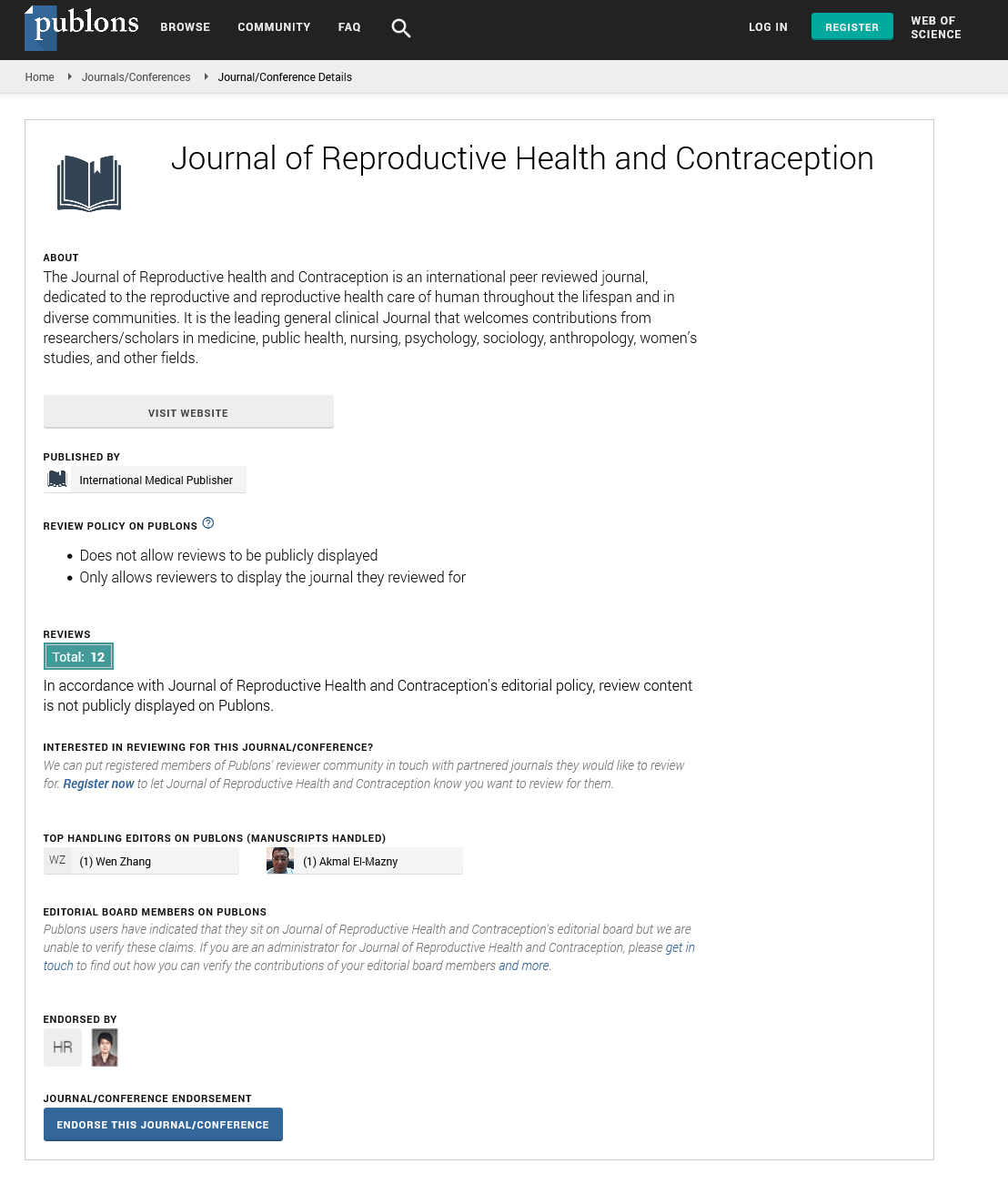ISSN : 2471-9749
Journal of Reproductive Health and Contraception
Feticide: A silenced issue
International Congress on Midwifery and Maternal health - October Webinar
October 11, 2021 | Webinar
Iris Ohel-Shani and Dalit Yassour-Borochowitz
Women’s Health Center, Clalit Health Services, Israel Emek Yezreel College, Israel
ScientificTracks Abstracts: J Contracept Stud
Abstract
Statement of the Problem: “Feticide” involves an invasive action, a procedure that is usually performed by an obstetrician specializing in maternal-fetal medicine (MFM). By virtue of its technical and psychological complexity, it may create psychological pressure and moral distress among physicians who provide this service. Most studies in this field have been conducted from the point of view of the woman who is undergoing the process. Less attention has been given to the impact of feticide on the physician. The main objective of this study was to examine the experiences of MFM physicians who perform feticide, to better understand how to support them in performing an action that is highly emotional and often controversial while also necessary and recurring. Methodology: We interviewed 14 MFM physicians in Israel. They were recruited via personal acquaintance and snowball sampling. This is a qualitative research method study, widely used to explore health professionals’ experiences and moral dilemmas regarding their work. We developed an in-depth, semi structured interview guide that consisted of open-ended questions to gather personal and professional experiences in performing feticide. Findings: All of the physicians who participated in the study (14) experienced symptoms of moral distress to some degree, although they did not necessarily define their experiences in that way. Despite their clear recognition that feticide is a necessary procedure, all describe themselves as suffering from some features of moral distress related to the process. The reasons for these difficulties are rooted in professional and emotional dilemmas that the physicians encounter. Conclusion & Significance: These findings reveal a strong need for more open discussions and sharing of doubts with colleagues regarding each case of feticide as well as a need for strategies to support clinicians who provide these essential but sometimes difficult services.
Biography
Iris Ohel-shani is a gynecologist and the Head of the Women’s Health Center, Clalit Health Services, in Rakati,Tiberias, Israel, as well as a member of Azrieli Faculty of Medicine, Bar-Ilan University, Safed, Israel. Dalit Yassour-Borochowitz is a professor of social work in Emek Yezreel College, Israel. I am a feminist and a researcher of issues regarding violence against women, and professional ethics. Currently I am involved in studies about economic abuse, and in studies that look into space and gender. I published several articles on these topics, and a book – 'Intimate violence" (in Hebrew ).
Google Scholar citation report
Citations : 201
Journal of Reproductive Health and Contraception received 201 citations as per Google Scholar report
Journal of Reproductive Health and Contraception peer review process verified at publons
Abstracted/Indexed in
- Google Scholar
- China National Knowledge Infrastructure (CNKI)
- WorldCat
- Publons
Open Access Journals
- Aquaculture & Veterinary Science
- Chemistry & Chemical Sciences
- Clinical Sciences
- Engineering
- General Science
- Genetics & Molecular Biology
- Health Care & Nursing
- Immunology & Microbiology
- Materials Science
- Mathematics & Physics
- Medical Sciences
- Neurology & Psychiatry
- Oncology & Cancer Science
- Pharmaceutical Sciences
